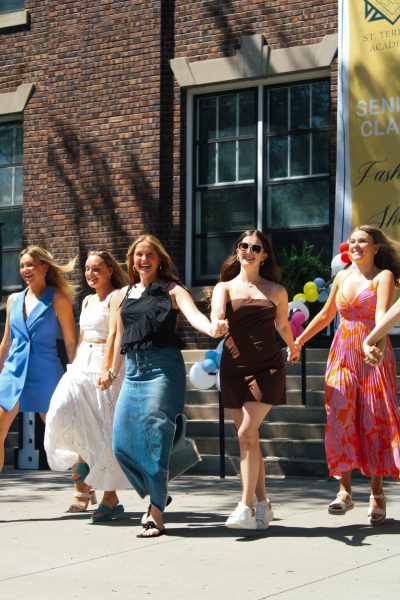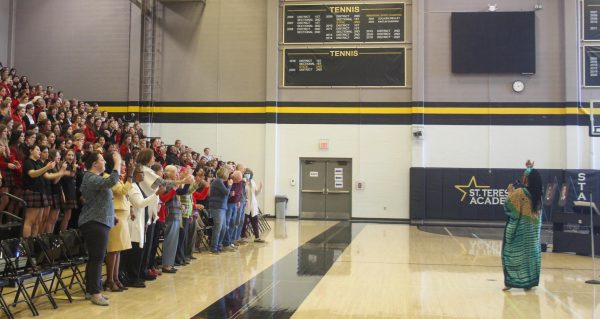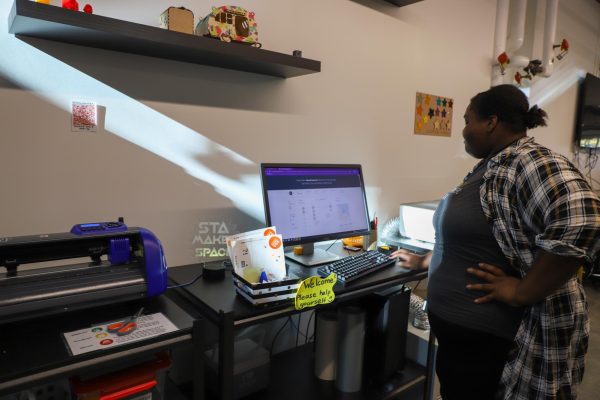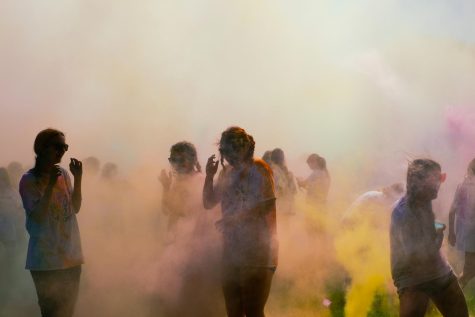Profit Over Prosper: Commercial Business’ Effect on Teenage Security
February 9, 2022
Buy me, I’ll make you prettier!
Advertising comes with a lot of false promises. Big companies prey upon people’s deepest wants and desire to help sell their products — capitalizing off of teenagers’ longings to blend in or fit into society’s standards. Pictures of beautifully shampooed hair and long, lean legs grace the sides of tens of thousands of buildings located in big cities.
Signs everywhere pick apart normal teenage developments and market them as flaws that need to be fixed. Acne must be washed away with a special serum; chin fat can disappear with the simple purchase of a jaw-enhancing mouthpiece. Through these marketing techniques, pubescent teenagers are taught to believe the only solution to the insecurities surrounding their physical appearances comes through buying overpriced beauty products or enhancements.
According to Askwonder.com, an “estimated 80% of U.S. women wear cosmetics each day. For the broader category of skincare and beauty, the average woman leaves her home each day having used at least 16 facial care or cosmetics products, and spends an estimated $250 per month on skincare and cosmetic products.”
The question asked by The Dart staff was “Does consumerism influence societal beauty standards?” A unanimous majority voted yes. The pressure teenage girls face in regards to their appearances has always been heavy, but with more and more exposure to the advertising of beauty products through media, the weight has become astronomical. Teenage girls are now expected to have perfectly shaped and painted nails, long luscious eyelashes, trendy clothing, and perfectly blown-out hair. Where do these high expectations stem from? The media’s fixation on promoting beauty standards through excessive advertising.
Many big businesses promote their models as being “all-natural.” Businesses claim that “you too would look like them” if you simply bought their $50 face wash or drank their mildly unappetizing celery juice. This push in appearing naturally beautiful without looking as if you’ve tried creates a new wave of insecurities amongst developing adolescents.
A young girl who was previously happy with their nightly routine is now being told they’re not doing enough — not buying enough to be considered a “natural beauty.” It is a human condition to want to fit in, to blend in with the crowd, and not stand out. If all of your friends are using a nightly liquid to grow their eyelashes — and it seems to be working — the only plausible solution is to join them and start using that enhancer too, otherwise, your eyelashes won’t look as flattering without a trace of mascara.
The cost of “beauty” is too profitable for too many big businesses. Social media pressures combined with the constant barrage of advertising results in unrealistic standards and expectations. The next time a product from a store shelf shouts “buy me!” teenage girls should stop and think about what they’re really paying for.






